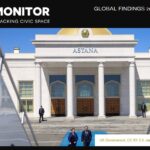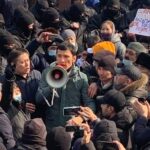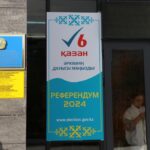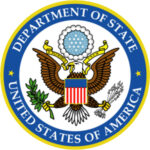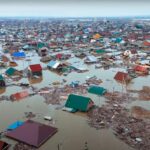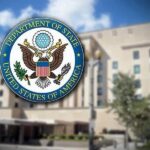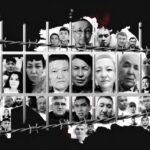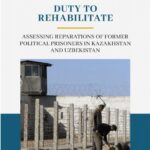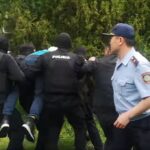Presenting his country’s bid for chairmanship of the Organization for Security and Co-operation in Europe in November 2007, Marat Tazhin, Kazakhstan’s foreign minister at the time, pledged his government’s commitment to preserving the OSCE’s role as a guarantor of human rights in Europe and Central Asia. Among a number of promised reforms, Tazhin told the OSCE Ministerial Council in Madrid that Kazakhstan would reform its media laws in line with international standards, singling out official plans to decriminalize libel.
Astana’s bid was approved, although its chairmanship was delayed a year to allow the government time to make good on its pledges. OSCE’s chairman-in-office at the time, Spanish Foreign Minister Miguel Moratinos, told reporters that members were satisfied with Kazakhstan’s direction, leaving unsaid a point that analysts quickly made: The organization was eager to name a Central Asian state to the chairmanship as a means of bridging divisions between members east and west of the OSCE’s Vienna base.
Back in Kazakhstan, independent journalists and civic activists split into two camps—those who believed an OSCE chairmanship would bring about reforms in human rights, including press freedom; and skeptics who saw the chairmanship as legitimizing the government’s authoritarian policies. Today, well into Kazakhstan’s leadership of the OSCE, the government’s actions have proved the skeptics right. Kazakhstan is falling well short of its commitments to the OSCE, the Committee to Protect Journalists has found, and the fallout is toxic. By disregarding human rights and press freedom at home, Kazakhstan has compromised the organization’s international reputation as a guardian of these rights, undermined the OSCE’s relevance and effectiveness, and thus devalued human rights in all OSCE states.
The year preceding the 2010 Kazakh chairmanship was supposed to bring about the promised changes to promote freedom of expression. But not only did the government renege on promises to decriminalize libel, President Nursultan Nazarbayev signed into law a restrictive new measure governing the Internet. The 2009 legislation equates all Internet resources—including personal blogs, chat rooms, and social networking sites—with traditional media, making them subject to the longstanding and repressive regulations that govern the press. In December 2009, on the cusp of Kazakhstan assuming chairmanship of the OSCE, Nazarbayev signed into law a measure expanding privacy rights in a way that benefits government officials. The broadly worded legislation bans publication of information about an “individual’s life,” while imposing penalties that include closing of media outlets and imprisonment of up to five years for journalists.
Attacks on the press have continued unabated in this, the year of Kazakhstan’s chairmanship, CPJ found during a week-long fact-finding mission to Almaty. Halfway into its OSCE chairmanship, Kazakhstan is holding at least one journalist and one prominent human rights activist in prison in retaliation for their work; at least two independent newspapers have been shut under government pressure; censorship has crept onto the Internet; authorities have reported no progress in solving the December 2009 murder in Almaty of a Kyrgyz journalist; and the state has continued to use bureaucratic pressure—including politicized audits—to stifle critical news and information.
Among journalists, press freedom advocates, and human rights defenders, CPJ also found widespread disillusionment with the OSCE and the international community in general. Time and again, journalists and advocates told CPJ they feel abandoned by the very entities and leaders who are supposed to be supporting their work. In the years preceding and including Kazakhstan’s chairmanship, they said, the government has methodically pursued a course of repression that has gone unchecked by the international community. “For the past 10 years,” said Tamara Kaleyeva, head of the local press freedom group Adil Soz, “authorities have been telling us the same things: ‘Journalists must be patriots,’ ‘Journalists must contribute to the formation of a positive worldview,’ ‘Journalists must not discredit the country abroad.’ These postulations haven’t changed from year to year.”
Kaleyeva said the leaders of domestic news media outlets know they must abide by these rules or face threats, intimidation, closure, or jail. “They know, for instance, that any form of critical coverage of the private or public life of the president and his family is out of the question.” While independent newspapers have pushed the boundaries, they have paid a high price. No journalists know this better than the leaders of the Almaty-based weekly Respublika.
A newspaper on the run
On May 18, Respublika celebrated its 10th anniversary with an exhibition that featured an array of editions published under the many titles the weekly has used to dodge harassment and potential closure. Ten titles in ten years. Oksana Makushina, Respublika’s deputy editor explains: “This is our survival technology—we run one main publication and a couple of supplemental ones, registered under names similar to the main one.” When a public official or a pro-government business sues Respublika for its critical reporting (and inevitably wins in Kazakhstan’s politicized courts), management creates a new corporate entity under a different, though similar, publication title. Management is still liable for monetary damages, but the recreated versions of the newspaper can be shielded from court-ordered closure.
Respublika has been a persistent government critic throughout the past decade, covering sensitive subjects such as big business, economic crimes, human rights violations, the activities of the president and his family, and high-level corruption. The cat-and-mouse game between Respublika and its opponents has been going on nearly as long. After an initial period of crude intimidation in the early 2000s—including an arson attack on the newsroom and the delivery of a funeral wreath to the editor—the weekly’s enemies have been using more sophisticated tactics.
On September 9, 2009, just three months before Kazakhstan was to assume the OSCE chairmanship, a district court in Almaty ordered the weekly, its editor, and owner to pay the partially state-owned BTA Bank 60 million tenge (about US$400,000) in damages. The lawsuit stemmed from an article published six months earlier that alleged the bank was facing financial pressure from foreign investors demanding repayment. Filing the lawsuit that August, BTA Bank management said Respublika’s article caused the bank to lose billions of tenge in deposit withdrawals. The paper, which stood by its reporting, pointed out that the bank’s financial condition had been widely covered elsewhere in the press. Nevertheless, the paper lost and was obliged to pay the damages.
Instead of allowing the paper to continue operations so it could pay the damages, on September 18, 2009, authorities raided Respublika’s printing house, Vremya-Print, and confiscated all copies of the paper’s latest edition. The printing house then refused to carry the weekly in any of its reincarnations. Similarly, other printers refused to produce the paper. “Some of the directors openly tell us that they have been warned with dire consequences should they take us on,” Makushina says. When the small printing house Kometa-S agreed to print Respublika on September 24, 2009, court officers raided the printing company, stopped the presses, sealed the facilities, and filed tax evasion charges against the director of Kometa-S. A year later, Kometa-S remains closed.
Yulia Kozlova, head of Kometa S, as her printing house is shuttered. (Respublika)Respublika has not closed, but it faces enormous difficulties. Without a printer, staff members are forced to produce Respublika’s latest reincarnation, Golos Respubliki, on office equipment, collating and stapling the pages of each copy as if it were a college term paper. Circulation has dropped from 22,000 to 19,000 as a result. Aggravating matters, an Almaty district court ruled in February that state distributors could not deliver even this version of the paper until Respublika had paid all damages to BTA Bank. The weekly appealed, saying it could pay damages only if it remained a viable business, but to no avail. “It is obvious that receiving compensation is not the bank’s goal,” Makushina says. “Ruining Respublika is.” In the meantime, staff members are distributing the paper on their own.
Facing official suppression of their print version, Respublika staffers have moved material on to the Web, multi-media project editor Anastasiya Novikova told CPJ. But censorship has followed. “About two years ago,” Novikova said, “we started placing more and more content online, but our website only functioned normally for a couple of months.” First, Novikova recalled, the website was periodically disabled by massive denial-of-service, or DDoS, attacks. (A DDoS attack prevents a website from functioning normally by overloading its host-server with external communications requests, the volume of which the server is unable to handle.)
To overcome this, Respublika applied the same sort of survival techniques online as it had in print: Staff created a variety of Web addresses, rotating content among them; it built pages on social networking sites such as Facebook and Twitter; and it circulated a “How to Circumvent Internet Censorship” brochure to help guide its readers. Novikova said many readers were lost amid the ever-shuffling platforms, but it was “better to reach some of our readers than none.”
Respublika’s main website has been inaccessible to most domestic viewers throughout much of 2010. While the alternative Web addresses keep the paper online, it is reduced to a fugitive existence, always on the run from the next cyber crackdown. Respublika staff and other journalists believe the main website has been blocked by Kazakhtelecom, the country’s largest Internet service provider. Kazakhtelecom, which is majority owned by the government, has not publicly addressed the assertion and did not respond to CPJ’s request for comment. But an experiment carried out by Respublika readers in the spring lends credence to the claim. Yevgeniya Plakhina, a Respublika reporter, told CPJ that readers were asked to open Respublika’s website on their personal computers. Readers served by Kazakhtelecom uniformly said they could not load the site, while readers served by other providers were able to access it.
Government applies online restrictions
Independent estimates put Internet penetration in Kazakhstan at 15 percent. Though the figure is modest, it reflects a significant increase from five years ago, when penetration was less than 3 percent. That would explain authorities’ perceived need to step up efforts to regulate cyberspace. In addition to censoring domestic content, the new and vaguely worded Internet law also allows for the blocking of international websites if those are found in violation of Kazakh law. (Not that authorities had waited for the law to block material: The government began blocking the U.S.-based Russian blogging site LiveJournal in October 2008, according to local journalists and news accounts.)
To implement the 2009 Internet law, Kazakh authorities created an agency called the Service to React to Computer Incidents. Kuanyshbek Yesekeyev, then head of the main state communications regulator (AIS), announced on March 1 that the service had started a review of “destructive” websites. Yesekeyev noted the creation of “black lists” of such sites but did not specify what sites were on them or how a site’s “destructive” character would be established. Attempts by local media groups and CPJ to receive clarification from the AIS (which on March 12 became the Ministry of Communication and Information) have gone unanswered.
The 2009 law also subjects online news media to the same restrictions that have long applied to traditional media, laws that analysts describe as among the harshest in the former Soviet states. These laws criminalize defamation, and allow for the seizure of editorial material, the blocking of broadcasts, and the suspension or closure of media outlets.
Extending government restrictions to online outlets might seem surprising at first. After all, the most popular news outlets reaching the vast majority of the population are all on television, and domestic broadcasters provide almost entirely positive coverage of the government. Laws governing ownership do not require transparency—broadcasters are owned in name by opaque corporate entities—but Nazarbayev family members have been publicly identified as the owners of prominent television outlets. For example, the president’s eldest daughter, Dariga Nazarbayeva, is listed as founder of the Khabar Broadcasting Agency, the largest television broadcaster in Kazakhstan, according to the official website of the Eurasian Media Forum, an annual international media gathering that Nazarbayeva chairs. International stations do not make much of a difference, said Kaleyeva of the press freedom group Adil Soz, because few people in Kazakhstan speak English or other European languages. By law, no more than up to 20 percent of television programming may be of foreign origin. That quota is easily filled by Russian programming, which rarely covers Kazakhstan’s issues.
Why, then, go after the little guys online, or in print for that matter? Independent journalist Sergei Duvanov, who was imprisoned in 2002 in retaliation for his reporting on government corruption, said pro-opposition newspapers and websites reach the urban elite, the segment of the population he describes as “civically active.” Says Duvanov: “The political establishment starts their day by reading the opposition press. They want to know what that press is saying. It does have an impact.”
For government officials, politicized defamation lawsuits have been a favorite retaliatory tool. The weekly Taszhargan folded in April 2009, for example, after being unable to pay 30 million tenge (US$200,000) in damages to legislator Romin Madinov in connection with a 2008 article alleging that the lawmaker’s business interests had benefited from his work in parliament. Yermurat Bapi, Taszhargan’s director, told CPJ the weekly unsuccessfully sought comment from the lawmaker before publishing the piece. Madinov had much to say in his lawsuit, though, claiming the article caused him “distress, discomfort, exasperation, melancholy, anger, and humiliation in the eyes of his voters and colleagues.” Still, Madinov never produced evidence in court that challenged the accuracy of the article or established a factual basis for the damages he sought.
In 2009 alone, Adil Soz found that 149 defamation claims had been filed seeking a total of 2.6 billion tenge (US$17 million) damages. Of those plaintiffs, 69—about half—were government officials, Adil Soz reported. These public officials now enjoy additional “privacy” rights under December 2009 legislation signed by President Nazarbayev. The law prohibits any “unsanctioned interference into an individual’s life,” without making clear distinctions between an individual’s private and public life, or between the activities of a public official and those of ordinary citizens. Analysts say the broadly worded measure will enable government officials to pursue privacy complaints in criminal court against journalists who are covering official activities.
Using law enforcement as a political tool
Individual journalists have found themselves under attack. In January 2009, authorities seized Ramazan Yesergepov, editor of the now-defunct newspaper Alma-Ata Info, from a hospital bed in Almaty, where he was being treated for hypertension. Two months earlier, Yesergepov had published two Kazakh security service (KNB) memos that suggested the agency had exerted undue influence on a prosecutor and judge in a criminal tax evasion case. The KNB, embarrassed by the disclosure, called the tax memos “state secrets” and targeted him for reprisal.
Following a closed-door trial that failed to meet basic fairness standards, Yesergepov was sentenced to three years in prison for “collecting state secrets.” During the course of his prosecution, Yesergepov was left without a defense lawyer and was denied access to his own case file. The lawyers Yesergepov sought to represent him were rejected by the court; his court-appointed attorney did not attend the trial. Yesergepov’s wife, Raushan, was not allowed to attend the proceedings. Yesergepov had to file his own appeals, all of which were denied.
Rozlana Taukina, president of the Almaty-based press freedom group Journalists in Danger, who has worked closely with the Yesergepov family, said the case exemplified the unequal footing that journalists have in any confrontation with the government. “The KNB was simultaneously plaintiff, investigator, and prosecutor in the case,” Taukina said. “This unarguably gave them an unfair advantage from the start.”
CPJ was initially granted permission to visit Yesergepov in June at a prison colony in Taraz, but officials with the local penitentiary service revoked the approval on the day of the visit. CPJ did interview the editor by passing questions through Taukina, who was admitted to the prison. “Lately,” Yesergepov said in one response from his prison cell, “authorities have been using sealed trial proceedings against dissidents, where all kinds of violations can happen and be concealed from the public. I went through all the stages of the Kazakh court system—including the Supreme Court. And all of the courts diligently neglected the apparent violations in my case. … I have little hope that I will be released early. But I do hope that with the support of international organizations the issue of the lack of fair trials for political prisoners in Kazakhstan will be put on the international agenda.”
In July, Yesergepov waged a hunger strike to protest what he termed the inaction of OSCE member states to Kazakhstan’s persistent human rights violations. In an open letter to the heads of OSCE nations, the journalist said: “In pursuit of other interests, you forgot about the key function of this once-authoritative organization and became involuntary accomplices in what goes on in my country now.”
Kazakhstan continues to imprison another government critic—Yevgeny Zhovtis, a prominent human rights defender. Zhovtis, who had provided expert analysis and commentary on Kazakh human rights and press freedom issues to international institutions, was found guilty of vehicular manslaughter in September 2009 and given a four-year sentence, despite extenuating circumstances and public statements by the victim’s family that the manslaughter charge should not be pursued. Zhovtis, who was not accused of driving while impaired, said he had been blinded by the lights of an approaching car and did not see the pedestrian, who was walking along the road in front of him. Zhovtis immediately reported the accident to authorities, met with the victim’s relatives, and offered them his support. Press defender Taukina, who attended Zhovtis’ trial, told CPJ the presiding judge had a written verdict ready as soon as the trial concluded. The official verdict filed later was altered to reconcile conflicting details, Zhovtis’s defense charged in an unsuccessful appeal.
While Kazakh authorities went after Yesergepov and Zhovtis zealously, they reported no progress in investigating the December 2009 killing in Almaty of prominent Kyrgyz editor Gennady Pavlyuk. Pavlyuk, 40, his hands and legs bound with tape, plummeted from the upper-story window of an apartment building. The editor had traveled to Almaty on business, the purpose of which remains unclear. Some local news reports said at the time that Pavlyuk intended to start an online publication and had traveled to Almaty to meet with potential partners. A week after his death, Kazakh police said they had identified several Kyrgyz citizens as suspects but did not name them, specify their alleged roles, or state their motive for killing Pavlyuk. Investigators have given no further updates on the case.
A summit as a public relations tool
Foreign Minister Saudabayev, right, with OSCE Secretary-General Marc Perrin de Brichambaut, outlined an agenda free of human rights issues.(Reuters/Shamil Zhumatov)In his public comments, Nazarbayev has made clear he has a great interest in hosting an OSCE summit as a centerpiece of Kazakhstan’s chairmanship. Despite domestic and international concerns, including those of CPJ, foreign ministers of the 56 OSCE member states agreed in July to hold a summit in Astana in late year. A date of December 1-2 was later set. In announcing the summit, Kazakhstan Secretary of State and Foreign Minister Kanat Saudabayev outlined an agenda that includes arms control; conflict prevention; the settlement of long-standing conflicts; and efforts to counter transnational threats. Human rights and press freedom issues were not among the agenda items.
Independent journalists, human rights defenders, and political dissidents see the summit as a public relations tool for the Nazarbayev administration, one that would lend legitimacy to his government and obscure its many human rights failures. At a June 1 Almaty roundtable organized by the opposition party Azat and attended by journalists, press freedom and human rights defenders, participants issued a resolution calling on Kazakhstan to adhere to its OSCE commitments. It read, in part: “The participation of OSCE member states in a summit in Astana must be supplemented by the demand that Kazakh authorities give concrete guarantees for the realization of the democratic reforms, to which they have committed.” Some sharper opponents—such as journalist Andrei Sviridov, who used to work alongside the imprisoned Zhovtis at the Kazakhstan International Bureau for Human Rights and the Rule of Law—charged that a summit should not be allowed to take place at all. Other participants, such as the independent journalist Duvanov, said the agenda must at least focus on Kazakhstan’s unfulfilled commitments in human rights and press freedom.
Such a discussion, Duvanov told CPJ, would be important to halt creeping anti-Western and anti-democracy sentiments in Kazakhstan, even in liberal circles where people feel their voices have been neglected by the international community. “There is a danger here,” Duvanov said, “when the West is losing its moral authority. Western-style democracy as a concept has lost its appeal.” If the international community is to win back the support of Kazakhstan’s citizens, Duvanov said, it ought to restore its moral authority by defending their trampled rights.
OSCE nations should uphold their own principles as well. Kazakhstan joined the OSCE in January 1992, voluntarily accepting the organization’s Human Dimension Commitments, a compilation of documents prescribing the obligations of member states. Though not legally binding, the documents have great political significance. The OSCE publicly describes them as “more than a simple declaration of will or good intention; they are a political promise to comply with these standards.”
The commitments include provisions on freedom of the media, such as “ensuring that individuals can freely choose, possess, reproduce, and distribute information material of all kinds” (as outlined in the Vienna 1989 document); “freedom to hold opinions and to receive and impart information and ideas without interference by public authority and regardless of frontiers” as well as “no limitation imposed on access to, and use of, means of reproducing documents of any kind” (as outlined in the Copenhagen 1990 document).
One key commitment, as charted in the Moscow 1991 document, is that issues of human rights and fundamental freedoms are not to be treated as internal affairs of one state but as matters of international concern. The Moscow 1991 document postulates that participating states accept those issues as “foundations of the international order,” and they commit to “fulfill all of their human dimension commitments and to resolve … any related issue, individually and collectively, on the basis of mutual respect and cooperation.”
Kazakhstan is failing to meet its human rights and press freedom commitments, not only as the leader of the OSCE but as member state. Its fellow OSCE members have their own obligation—to act collectively to uphold the rights of Kazakhstan’s citizens. In a year that has done damage to the OSCE’s reputation as a defender of human rights, it is not too late for the organization and its chair to change course by publicly confronting Kazakhstan’s record of repression at the December summit and undertaking measurable, meaningful reforms.
Nina Ognianova is CPJ’s Europe and Central Asia program coordinator.
CPJ’s Recommendations
To the government of Kazakhstan
•Release imprisoned journalist Ramazan Yesergepov and human rights defender Yevgeny Zhovtis. End the practice of jailing journalists and government critics in retaliation for their work.
•As your government promised when seeking the OSCE chairmanship, repeal criminal defamation laws and make defamation a civil matter only.
•Repeal the restrictive Internet and privacy laws of 2009. Ensure that all future legislation is in line with international standards for freedom of expression and press freedom.
•Halt the use of retaliatory, antistate charges against journalists who report sensitive information of public interest.
•Restore domestic online access to the website of the weekly newspaper Respublika and to the blogging site LiveJournal.
•Dismantle the Service to React to Computer Incidents and halt attempts to block or censor online news content.
•Urge members of your government and its allies to halt the use of politically motivated defamation complaints against critical newspapers.
•Stop pressuring printing houses and distributors into denying service to Respublika and other independent and opposition titles.
•Drop the politically motivated tax lawsuit against the printing house Kometa-S and its director, Yulia Kozlova. Allow Kometa-S to resume operating.
•Publicly disclose the status of the investigation into the December 2009 killing in Almaty of Kyrgyz journalist Gennady Pavlyuk. Investigate the case thoroughly, apprehend the perpetrators, and prosecute them under the law.
•Fully comply with the determinations of the U.N. Human Rights Committee concerning Kazakhstan press freedom cases.
To the leaders of the OSCE
•Put Kazakhstan’s press freedom record on the agenda for the December 1-2 OSCE summit in Astana. Invite Kazakhstan’s independent and opposition journalists, independent media analysts, press freedom defenders, and civil society representatives to take part in related discussions. •Call on Kazakhstan to comply with the pledges it made in Madrid in 2007 to reform media legislation in line with OSCE standards.
•Support the work of the OSCE representative on freedom of the media, who monitors press freedom developments in all 56 member states and advocates full compliance with OSCE press freedom commitments. Ensure that the recommendations of the OSCE representative on freedom of the media are fully implemented.
•In keeping with OSCE commitments, address violations of human rights and press freedom as matters of collective concern. Based on the Moscow 1991 Document, uphold the rights of Kazakhstan journalists.
•Condition bilateral and multilateral agreements with Kazakhstan on the implementation of meaningful press freedom reforms.
•Demand publicly and unequivocally the release of imprisoned journalist Ramazan Yesergepov and human rights defender Yevgeny Zhovtis; the guarantee of free access to all online news content, including material critical of Kazakh authorities; and the immediate halt to political pressure on printing houses and distributors that serve independent and opposition publications.
To the leaders of the European Union
•Emphasize the importance of human rights and press freedom in negotiations with Astana to enhance the Partnership Agreement of 1999.
•Apply to Kazakhstan the EU and Central Asia Strategy for a New Partnership of 2007, which advocates a strengthened EU approach to human rights, rule of law, good governance, and democratization.
•Through the high representative for foreign affairs and security policy, defend Kazakh journalists and human rights defenders who are victims of repression.
•Establish the EU Human Rights Dialogue with Astana as an instrument for drafting clear goals and benchmarks on press freedom. Seek the effective implementation of international press freedom standards, to which Kazakhstan has committed itself through its OSCE membership and the ratification of U.N. covenants.
•The European Commission must ensure that the support it provides through the European Instrument on Human Rights and Democracy effectively benefits Kazakhstan’s independent journalists and press freedom organizations.•The European Parliament should emphasize press freedom during the next meetings of the EU-Kazakhstan Parliamentary Cooperation Commission; hold a hearing to assess the impact of the Kazakhstan OSCE chairmanship on human rights in the region; and pass a resolution in favor of more engaged EU policy in support of human rights and press freedom in Kazakhstan.
To the U.N. Human Rights Committee
•As a signatory to the Optional Protocol to the International Covenant on Civil and Political Rights, Kazakhstan recognizes the authority of the U.N. Human Rights Committee to consider communications from Kazakh citizens and determine whether provisions of the Covenant have been violated. The U.N. Human Rights Committee must promptly consider press freedom complaints by Kazakh citizens and recommend remedies.
To the leaders of the United States
•In bilateral and multilateral meetings, the United States must engage Kazakh leaders on human rights and press freedom. U.S. leaders must publicly and forcefully defend Kazakh journalists who are victims of repression; remind Kazakhstan of its press freedom commitments; and demand that Kazakhstan take immediate actions to remedy press freedom violations.
•The U.S. Congress—including the Senate Committee on Foreign Relations, the House Committee on Foreign Affairs, the Tom Lantos Human Rights Commission, the Commission on Security and Cooperation in Europe, and the Congressional Caucus on Central Asia—should hold public hearings on press freedom issues in Kazakhstan. These bodies should undertake appropriate oversight measures, including the passage of resolutions, and factor press freedom concerns in shaping U.S. policy toward Kazakhstan.
SOURCE:
http://cpj.org/reports/2010/09/disdaining-press-freedom-kazakhstan-undermines-osc.php


